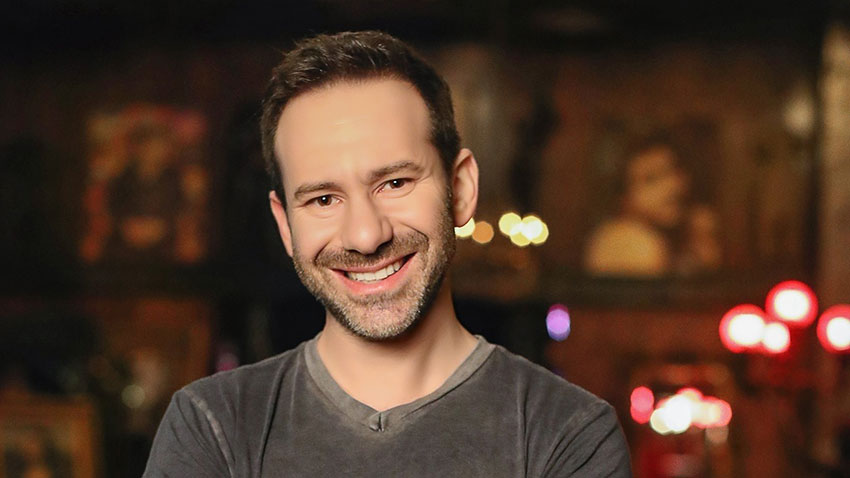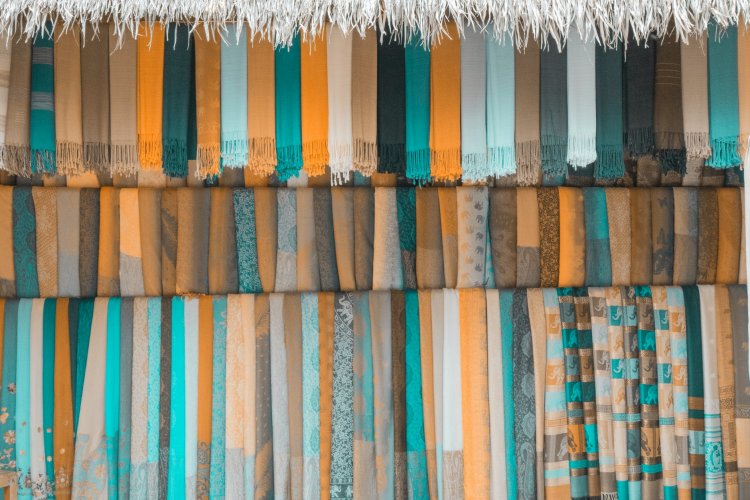Russia sanctions emptied these London mansions. Now they’re falling apart.
David Davidovich's mansion lies derelict, a harbinger of what may come for many of London’s most expensive and beautiful properties owned by Russian oligarchs.
It’s a fitting property for an oligarch. Two giant townhouses, five stories each, combined into one super mansion with white Georgian pillars and a direct view of Kensington Palace.
But at the moment, the only inhabitants of the manor are a family of pigeons.
The two properties on Prince of Wales Terrace, Kensington W8 — frequently named as one of Britain’s most expensive postcodes — were purchased by David Davidovich for the grand price of £16 million in 2018 with the aim of turning the former run-down hotel into luxury flats.
But they now lie derelict, a harbinger of what may come for many of London’s most expensive and beautiful properties owned by Russian oligarchs.
Davidovich, described as the “lesser known right-hand man of Roman Abramovich,” was sanctioned in April 2022 by the British government following Russia’s invasion of Ukraine.
Sanctioned individuals, who splashed out many millions of pounds for a piece of London’s most desired postcodes, cannot visit, sell or rent out their abodes. What’s more, sanctions legislation makes paying for upkeep or performing even needed repairs extremely difficult.

As a result, numbers 18 and 19, Prince of Wales Terrace, are in utter disrepair. The paint has peeled off the Georgian columns, wires dangle from the sides, and the cladding has crumbled, leaving wood panels exposed. Weeds have begun to climb from the foundations, and pigeons nest in the balcony. The dirty exterior cuts a sharp contrast with the sparkling ivory of neighboring properties.
And the locals aren’t happy.
“The houses are boarded up, and they’re in a pretty sorry state, and there’s nothing happening with them. They look awful. It’s prime real estate, not doing anything. I would argue that in some of these cases, these are assets of the Russian state,” said one Knightsbridge resident, who advocates seizing the properties from Davidovich.
Another concerned neighbor said that shards of glass and pieces of debris had fallen off the buildings onto their property. They were particularly worried about damage to the structures from rain, as many of the windows are smashed, allowing water to get in easily.
The residents’ local MP is, serendipitously, Westminster’s biggest anti-corruption champion. Joe Powell wrote to Foreign Office Minister Stephen Doughty on April 28, urging the government to take action on the “urgent need to manage any unintended consequences of sanctions, particularly in the property sector.”
“As time goes on, we’re going to increasingly have a situation where we’ve got buildings that are in neglect,” Powell said.

Davidovich bought the premises when they were already in a sorry state — and was granted permission to turn them into luxury apartments (he was ultimately unable to do so, however, after being sanctioned). But as time goes on, assuming Russian oligarchs remain sanctioned, many other dwellings will start to crumble, their dilapidated appearance an unintended consequence of a well-intentioned policy.
No entry
Once a property is sanctioned, its owner can do nothing to increase its value. While paying for upkeep is technically possible, the process is slow and complicated, according to lawyers POLITICO spoke with. To maintain the estate, sanctioned oligarchs need to apply for a general license from the Treasury’s sanctions watchdog, the Office of Financial Sanctions Implementation (OFSI).
“They are overwhelmed at the moment, as you can imagine, since the Russian war started,” Angeilka Hellwegger, a sanctions lawyer at Rahman Ravelli, said of the office. “So this means if you have a licensing application, for example if you want to repair a window, it takes them a lot of time to actually get this done.”
If a pipe burst in a sanctioned building, an owner could technically intervene, but getting an immediate response from OFSI would be challenging. And even if the individual managed to get permission to fix the pipe, any ensuing refurbishment wouldn’t necessarily be covered. As a result, neighbors of terraced properties adjoining those owned by sanctioned oligarchs fear being collateral damage from any plumbing or gas issues, for example — not to mention the unsightliness.
Hellweger gives the example of buildings owned by the Libyan regime that were sanctioned in 2011 and have now fallen into disrepair. These include 86 Fleet Street and a £10 million mansion in Hampstead, owned by the son of former Libyan leader Col. Moammar Gadhafi, which was taken over by squatters in 2011.
But the property empire of Russian oligarchs poses greater problems, as they own far more real estate in London than the Libyan regime, according to Hellweger. “There are many more Russian assets in the City, in very affluent areas, which have cultural significance for the City of London,” she said.

Transparency International estimated in 2022 that Russians owned £1.5 billion worth of property in London. The real number is likely far higher due to the webs of secrecy used to conceal the true ownership of a building. When the figures were published, Duncan Hames, director of policy at Transparency International, said “the sheer volume of assets held [in London] by opaque offshore companies means this is certainly just the tip of the iceberg.”
Another sanctions lawyer, who requested anonymity due to the sensitivity of the cases they were working on, highlighted the complications around sanctioned property.
“It’s a really bizarre set of circumstances. We were dealing with a really expensive office block in central London, which was owned by someone sanctioned. They had to get portaloos in, because legally they couldn’t pay to fix the plumbing,” they said.
An oligarch magnet
Though the trappings of an oligarch can be glamorous, their origins are often less so. Davidovich made a great chunk of his fortune through processed meat as the owner of Prodo, the second-largest meat processing company in Russia. Ambramovich started out in business by selling rubber ducks from his flat.
An investigation by the Wall Street Journal found that Abramovich had transferred control of his investment vehicle, Norma Investments Ltd., to Davidovich on Feb 24, 2022, hours after Russia invaded Ukraine. Davidovich was sanctioned shortly after.
While some world leaders are attempting to negotiate an end to Russia’s war in Ukraine, there is no conclusion in immediate sight. Even if a ceasefire is reached, governments would face a challenge in unraveling the complex web of sanctions if they decided to do so.

Powell, who chairs a cross-parliament anti-corruption group, suggested the properties could be sold and the money held in a neutral third-party account until the sanctions are removed or a policy decision is taken on where the funds should go.
The debate on whether to seize frozen Russian assets is far greater in scope than just two buildings in Kensington. But the case shows that Britain’s sanctions regime “needs to adapt,” Powell said.
“I think initially, naturally, the focus of the previous government was to penalize people connected to Putin and supporting the war. Now we need to think about what we can do if these properties remain sanctioned for potentially years to come.”
And dilapidated houses belonging to sanctioned oligarchs may force Kensington residents to confront a wider issue: the large amount of property in the area that is bought with the proceeds of dirty money.
Powell said 40 percent of foreign-owned property in Kensington and Chelsea is bought through a trust — meaning the real owner isn’t displayed on the land registry.
“The rich foreigners are the newcomers. And not all of them come from countries with dirty money problems, but it’s hard to differentiate sometimes,” said the Knightsbridge resident. “They just lock up the flat, and they’re never there. They are not part of the community. They try to keep a very low profile.”




















:quality(85):upscale()/2023/10/03/668/n/1922283/1f15c8a9651c2d209e5eb5.32783075_.jpg)
:quality(85):upscale()/2025/08/14/650/n/1922283/470aeb83689df49cdc1bb6.14084110_.jpg)
:quality(85):upscale()/2025/08/13/775/n/1922283/3c0cbead689ccd0c422644.10221678_.png)
:quality(85):upscale()/2025/01/08/844/n/1922398/cde2aeac677eceef03f2d1.00424146_.jpg)
:quality(85):upscale()/2025/07/10/708/n/1922398/8fe2782e686fe372b38bf8.29984296_.jpg)














:quality(85):upscale()/2025/02/27/808/n/1922398/26784cf967c0adcd4c0950.54527747_.jpg)

